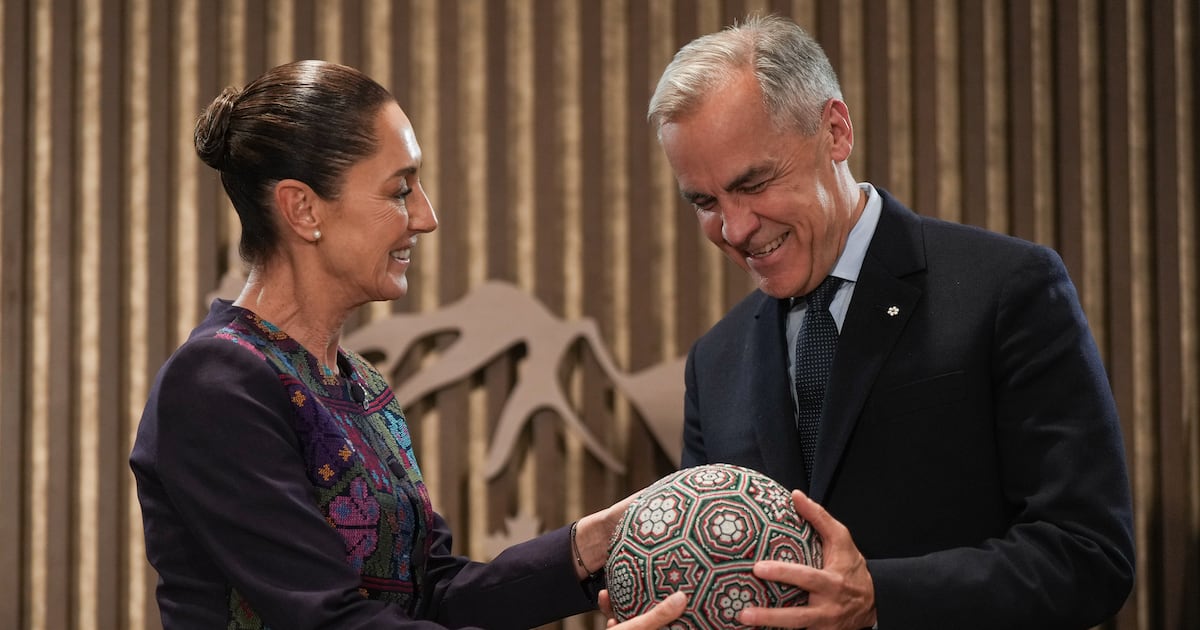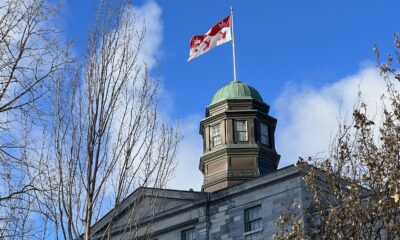Top Stories
Canada’s Trade Strategy Shifts: Will Counter-Tariffs End?

URGENT UPDATE: Canada is reevaluating its trade strategies as Prime Minister Mark Carney hints at potentially removing counter-tariffs imposed on the United States. This significant shift in policy comes amid ongoing negotiations surrounding the Canada-U.S.-Mexico Agreement (CUSMA), raising questions about Canada’s trade stance and future partnerships.
Earlier today, Carney indicated that eliminating these counter-tariffs could facilitate smoother negotiations with U.S. President Donald Trump. The move has sparked confusion among many Canadians, particularly given the tumultuous history of trade relations between the nations. Critics argue that Canada risks conceding too much ground, having already created obstacles for itself by imposing tariffs on goods meant to be exempt under existing agreements.
As discussions unfold, it’s evident that Canada has been perceived as the party violating trade norms, not the U.S. Trump has claimed that removing counter-tariffs is essential for progressing negotiations, an assertion that has drawn sharp rebuttals from Canadian officials. The stakes are high; if Canada wishes to stand firm in future trade dealings, it must regain the negotiating high ground.
The urgency of this situation is underscored by Manitoba Premier Wab Kinew, who expressed frustration with Carney’s approach, noting that local priorities are often overlooked in favor of U.S. interests. Kinew highlighted the impact of Chinese tariffs on Manitoba’s canola farmers, advocating for the removal of tariffs on Chinese electric vehicles instead. His remarks reflect a growing sentiment among provinces that Canada needs to diversify its trade relationships beyond its traditional ties with the U.S.
“We have to be staking out our own path to foreign policy,” said Kinew, emphasizing the need for Canada to explore new trade partners and opportunities for its vast natural resources.
Looking ahead, the negotiations will not only involve trade tariffs but also address broader issues surrounding border security and public safety, particularly regarding the fentanyl crisis. Trump’s narrative around border security remains a critical point of contention, complicating the negotiation landscape.
Carney’s team, which includes skilled officials like Ambassador Kirsten Hillman, is poised to tackle these challenges head-on. Hillman has been recognized for her ability to navigate the complexities of U.S.-Canada relations, a crucial asset as Carney attempts to balance the needs of various provincial leaders while standing firm against U.S. pressure.
As negotiations with the U.S. continue, Canada must not only address counter-tariffs but also consider the long-term implications of its trade policies. The urgency of finding new trade partners is paramount as Canada seeks to secure its economic future while maintaining a strong stance in international dealings.
With less than four months since Carney’s election and a clear mandate to advocate for Canada, the pressure is on to redefine the nation’s trade landscape. The coming weeks will be pivotal in determining whether Canada can navigate its way through these turbulent waters or if it will continue to be overshadowed by its southern neighbor’s demands.
Stay tuned for further updates as this story develops, particularly regarding Carney’s discussions with Trump and any potential shifts in policy that may emerge. The future of Canada’s trade relationships hangs in the balance.
-

 Politics4 weeks ago
Politics4 weeks agoSecwepemc First Nation Seeks Aboriginal Title Over Kamloops Area
-

 World5 months ago
World5 months agoScientists Unearth Ancient Antarctic Ice to Unlock Climate Secrets
-

 Entertainment5 months ago
Entertainment5 months agoTrump and McCormick to Announce $70 Billion Energy Investments
-

 Science5 months ago
Science5 months agoFour Astronauts Return to Earth After International Space Station Mission
-

 Lifestyle5 months ago
Lifestyle5 months agoTransLink Launches Food Truck Program to Boost Revenue in Vancouver
-

 Technology3 months ago
Technology3 months agoApple Notes Enhances Functionality with Markdown Support in macOS 26
-

 Lifestyle3 months ago
Lifestyle3 months agoManitoba’s Burger Champion Shines Again Amid Dining Innovations
-

 Top Stories2 months ago
Top Stories2 months agoUrgent Update: Fatal Crash on Highway 99 Claims Life of Pitt Meadows Man
-

 Politics4 months ago
Politics4 months agoUkrainian Tennis Star Elina Svitolina Faces Death Threats Online
-

 Sports5 months ago
Sports5 months agoSearch Underway for Missing Hunter Amid Hokkaido Bear Emergency
-

 Politics5 months ago
Politics5 months agoCarney Engages First Nations Leaders at Development Law Summit
-

 Technology5 months ago
Technology5 months agoFrosthaven Launches Early Access on July 31, 2025




















